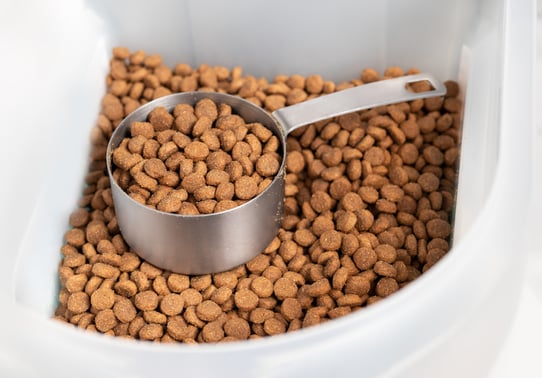In industrial material processing applications, the selection of appropriate separators plays a crucial role in achieving efficient and effective production processes. Two commonly used types of separators are circular separators and linear separators. Here, Stephen Harding, managing director at the materials handling specialist Gough Engineering, explores the features, benefits, and differences between these two technologies, as well as their applications in various industries.

Balancing high throughput and process effectiveness in material handling applications is a common challenge for manufacturers, especially when diverse materials are being handled. Diverse means the materials can vary in size, density, shape and composition. In addition, they can entail a range of ingredients, herbs or spices and nutraceuticals in the food industry or various chemicals and plastics in their respective sectors.
More complex factors include moisture content, contamination, inconsistent particle size and variability in product properties also pose significant hurdles. Fortunately, this is where advanced technologies, including specialised screening and sorting equipment, come into play. With automated quality control systems and stringent quality assurance protocols, manufacturers can overcome these challenges and deliver high-quality products that meet industry standards and customer satisfaction.
Linear separators
Linear separators are commonly used in the recycling industry, such as to process rubber or copper metals, for handling small-volume and small particle-sized aggregates.
They offer high throughput rates and the ability to separate materials into multiple fractions. Linear separators can handle irregularly shaped product materials that may require more aggressive vibration for efficient separation. They can also accommodate larger volumes of product due to their larger screen surface areas and vibrational amplitude compared to circular machines.
They can also provide multi-deck separation. Similar to circular separators, linear separators can be configured with multiple screening decks. This allows for the separation of materials into two, three, or four fractions, condensing multiple processes into a single unit.
To optimise the performance of circular and linear separators on production lines, it is crucial to integrate them with complementary and co-harmonious equipment. This integration ensures a smooth material flow and maximises overall process efficiency.
Circular separators
Circular separators are suitable for fine powders, granular materials, and pellet products. They utilise controlled spiral vibration flow during separation, designed for differing particle sizes and ensuring precise grading and accurate separation. They are particularly effective in fine classification, ensuring product quality before packaging or forming machines.
Circular separators, such as the Vibrecon® Vibratory Separator (GVC) by Gough Engineering, offer a rotary action separating and sifting system. These separators excel at processing materials on an industrial scale, providing accurate particle separation based on size.
The GVC system, with the correct mesh(es) or perforated plate(s), can handle multiple fractions and can be configured with single or multiple screening decks. This allows for the separation of materials into specific grades or fractions based on particle size, increasing process effectiveness for superb classification. Gough Engineering's circular separators are designed to be robust and easily maintained, resulting in minimal spares over the machine’s operational lifetime and reduced full cleaning downtimes, respectively.
Areas for growth
Gough Engineering stands out from its competitors in the vibratory separator market due to its fit-for-purpose solutions and extensive knowledge and experience. The company offers trials and utilises a comprehensive database of previous applications to provide tailored solutions to various industries. Moreover, Gough Engineering provides full parts and service backup, ensuring reliable support throughout the equipment's lifecycle.
Several Gough Engineering customers use circular and linear separators. Molecular Products, a world leader in the design and manufacture of life critical devices for the treatment of breathable gases, utilises circular separators for fine classification, removing oversize materials and fines from breathable gas treatment products. GA Pet Food Partners, a dry pet food manufacturer, uses a linear vibrating screen to remove fine from dry kibble products before packaging. Each solution designed specifically for the customer’s product materials and operational requirements.
In the coming years, Gough Engineering envisions expanding its vibratory separators and linear screens into new markets and applications. Promising areas for growth include proteins and nutraceutical production lines, and entomophagy — the use of insects for protein and minerals in certain food production.
Circular separators and linear separators are essential tools in industrial material processing applications. Their individual features and benefits make them suitable for different industries and production challenges. Gough Engineering's vibratory separators, with their fit-for-purpose solutions, dedicated customer support, and extensive knowledge base, provide efficient and reliable solutions for a wide range of industrial applications.


